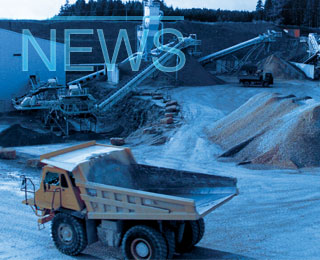Boral announced that subject to employee consultation processes, it intends to suspend indefinitely clinker manufacturing at its Waurn Ponds cement works in Victoria from April 2013. The clinker manufacturing assets have a book value of approximately US$100m. The site will continue to operate as a cement milling facility using imported clinker.
The change will result in 25-30% of the company's clinker requirement being imported, which is in line with the Australian industry average. The company's fixed cost base will be reduced while flexibility to respond to changes in east coast market demand will be increased. Continuity and quality of cement through the company's extensive supply network will be maintained as part of any transition to more flexible supply arrangements of cement manufacturing and clinker importing.
About 90 staff at the Waurn Ponds cement plant near Geelong will be affected by the suspension of clinker manufacturing, a product used in cement. The Australian Workers' Union (AWU) says it will work with the company to try and save as many jobs as possible.
"A continued low level of demand associated with the downturn in Australian building and construction activity is also adversely impacting the profitability of Boral's cement business, where high fixed cost manufacturing assets continue to be under utilised," Boral chief executive Mike Kane said in a statement.
"Across all of our businesses we need to ensure that we are aligning our domestic production with demand levels, and that our cost structures are globally competitive and can be sustained through the cycle."
The changes are part of a company-wide review to identify potential cost reductions, and the outcome of that will be revealed in February, Mr Kane said.

Lesser government spending causing weaker sales in Pakistan
Pakistan's local cement sales have been adversely affected by reduced government funding, as sev...
